Overall, the essay series serves as a call to reimagine our politics to address contemporary challenges by reviving the foundational questions of political life, aiming to reinvigorate public discourse with moral and ethical considerations about the societies we aspire to create.
Starting from where we are
By now, we have seen that it is impossible (or at least unwise) to consider the organisation of human affairs without properly acknowledging the very real and varied attachments, commitments and differences in perspective and aspiration that embodied, embedded, people actually have.
Not only is politics something we cannot avoid, but we also always come to it, as Bonnie Honig observes, in medias res.[1]
If keeping real people in mind can help us reason better about their well-being, then in doing political philosophy we will need, as Richard Rorty says, to ‘start from where we are’.[2]
Bernard Crick reminds us that what is special about politics as an activity is its public nature.[3] For Crick, politics is the working out of inevitable social disagreements – in public – with the hope of reaching a civil conciliation between rival interests.
What is special about politics as an activity is its public nature – the working out of inevitable social disagreements in public with the hope of reaching a civil conciliation between rival interests.
Such a system of politics survives, as Graham Freudenberg notes, ‘on the unwritten understanding that no powerful group shall be absolutely excluded, and no group shall get everything it wants.’[4]
On this view, the civility of this process is politics’ greatest promise and its greatest achievement, and for this reason Crick regards Politics as a form of political rule in itself, as distinct from others such as ‘tyranny, oligarchy, kingship, dictatorship, despotism, and ... totalitarianism.’[5]
This view, based as it is on public conflict and power-sharing, has much to commend it, but regrettably, nothing we have so far seen about politics suggests that we can expect it to be civil.
We can certainly attempt to create fenced-off areas of public civility and ideal speech, in the spirit of Habermas’ discourse ethics for deliberative democracy. But there will be politics present already in the creation of such spaces, and constituent power will be present in the manner of their creation.
Constituent power, you may recall from Part 2 of this essay series, is the exceptional, sovereign power to decide the basic arrangements that will henceforth constitute a political order.
In this sense, public speech becomes a sort of theatre — no matter how convincing, the real politics is always happening backstage.
One need only watch a few minutes of Parliamentary Question Time, any given Q&A-style political panel show, or a typical candidate's debate, to see this phenomenon in action.
It is unclear what kind of procedural changes could change the fundamental paradox here.
Democracy is an unending conflict over the public things we all care about
In any case, as Honig reminds us, it is misleading to think that political space is something we create only once and then inhabit thereafter. With each political communication we create and define political space anew, with all of the implications of constituent power this entails.
In this sense, Honig says, we are always in the ‘moment of founding.’[6] For a liberal democracy, this means:
[T]he people are never so fully what they need to be (virtuous, democratic, complete) that a democracy can deny credibly that it resorts to violence, imposition, or coercion to maintain itself.
In some sense that is, the “people” are always undecidably present and absent from the scene of democracy.
That is why it is always part of the point of democratic political practice to call them into being, rhetorically and materially, while acknowledging that such calls never fully succeed and invariably also produce remnants.[7]
If this is true, then we cannot hope always to do politics civilly around the negotiating table between all affected parties, because in practice there are too many tables to be at and we cannot in any case fit everyone at once around any single one of them.
In any political settlement, some people will be unsatisfied and others will be left out altogether (this is what Honig means by ‘remnants’), but all will have to live with the consequences, and the way we do democracy may not always be democratic.
Democracy, in the practical sense, is always a fudge.
But this realisation is more properly a cause for perspective than despair. A society that can work through its conflicts in public, however haphazardly, has something over authoritarian societies whose continued survival depends on the existence of such conflict being denied or suppressed.
In this sense, political fudge (or even waffle?) is sweeter than nothing.
If we wish to recommit ourselves to liberal democracy, the question then becomes: how do we make a better-tasting fudge?
Democracy, in the practical sense, is always a fudge. If we wish to recommit ourselves to liberal democracy, the question then becomes: how do we make a better-tasting fudge?
The attentive reader will have already spotted a trap — who shall decide authoritatively what a better liberal democracy looks like?
My own argument for this is hardly exempt from the conflict and constitutive power I have been discussing throughout. While we might agree on the need for a better liberal democracy, we might just as easily disagree over what we mean when we say ‘better’.
Each of us has some idea of what makes one state of affairs better than another — some benchmark or set of standards you can use to think or measure with — as I have mine. To return to the observation we started with in Part 1, politics is simply what happens when my worldview collides with yours.
To locate politics in this moment of collision emphasises what authors including Bonnie Honig, Chantal Mouffe, and John Gray have described as its ‘agonistic’ character, a term chosen for its evocation ‘both of a contest, competition or rivalrous encounter, and of the conflict of characters in tragic drama.’[8]
Whereas many variants of conventional democratic political theory typically focus on the populace itself (the demos), Honig prefers to focus on the objects of democratic life – the 'public things' that real-life citizens care about – infrastructure, spaces, and services such as libraries, monuments, transport networks, or the National Health Service.
The inevitable and unending contest of values, far from frozen or foregone, is most active and legible in the way real people relate to and get into conflict over the various public things they care about.
How can we learn to read and navigate such conflicts over values and public things? And is there an approach that can help us decide whose ‘better’ is best?
Many kinds of answer to "what is a good life?"
If there is no such thing as a value-neutral position, and if real political conflict is ultimately over rival conceptions of good, it will help the public enactment of this conflict tremendously to employ an ethical vocabulary that is equipped to engage with the specific and particular content of these rival goods.
What kind of ethical vocabulary is best suited to getting to particulars in this way?
It is characteristic of the dominant approaches to ethics (deontology and consequentialism) that they locate the work of ethics in procedure, rather than in content or in context.
That is to say, ethics in the dominant approaches becomes a matter of devising the right rules for action, or the right formula for calculating outcomes.
No simple task! But the promise of these approaches is that once the work is done and the right rules or formulas are in place, it is assumed that we need only apply these and good will follow.
For advocates of such approaches, their context-independent nature is considered a strength – no matter the situation, follow good procedures and good things will happen.
But, and this is a big but... if inevitable and ongoing conflict of values is really at the core of politics, locating ethics in abstract procedure is not going to help us in practice, because the interpretation of good is itself part of that conflict.
If inevitable and ongoing conflict of values is at the core of politics, locating ethics in abstract procedure is not going to help us because the interpretation of good is itself part of that conflict.
Rather than a single unified Good, the variety of lived experience shows us there are instead many goods, and conflict over these is so rife (and so unremarkable) simply because there exists an abundance of possibilities for combining and realising these.
This is the idea of value-pluralism, as Joseph Raz explains:
Value-pluralism is the doctrine ... which takes the plurality of valuable activities and ways of life to be ultimate and ineliminable. This radically changes our understanding of pluralism.
On a reductive-monistic view when one trades the pleasures (and anxieties) of a family life for a career as a sailor one is getting, or hoping to get the same thing one is giving up, be it happiness, pleasure, desire-satisfaction, or something else. One gives up the lesser pleasure one would derive from family life for the greater pleasure of life at sea.
If value-pluralism is correct this view is totally wrong. What one loses is of a different kind from what one gains. Even in success there is a loss, and quite commonly there is no meaning to the judgement that one gains more than one loses. When one was faced with valuable options and successfully chose one of them one simply chose one way of life rather than another, both being good and not susceptible to comparison of degree.[9]
When there exists a plurality of worthwhile values that cannot be compared to each other and do not share a common standard of measurement, these are said to be incommensurable values.
It is important to make clear right away that this is not at all the same thing as moral relativism, which is the position that values are completely subjective and thus no individual or group’s perspective on this is able to be judged by another.
Moral relativism, taken seriously, would make a constructive politics impossible.
Fortunately, moral relativism is a difficult position to take seriously for practical purposes in any case – if values (and, for some relativists, truth itself) are only ever a matter of subjective opinion, what makes the basic fact of moral relativism true or valuable except that a moral relativist says so? By their own logic, the value of moral relativism can be safely ignored if we don't wish to bother with it. So let's not.
Value-pluralism, by contrast, holds that different conceptions of good are often highly intelligible to each other and can be contested through rational debate. It is simply that the different conceptions of good cannot be compared quantitatively or always reduced to a single kind of good.
It's also worth noting briefly that there is a long-running and illuminating debate between so-called foxes and hedgehogs — those who claim a plurality of values and those who claim a unity of values. ("The fox knows many things, but the hedgehog knows one big thing.") Though they often write in opposition to each other, I do not see a necessary nor fundamental contradiction between the views of John Gray and Joseph Raz, for example, and those of Ronald Dworkin. Indeed, in my view a fruitful combination of sorts may be possible, though this is not the place to attempt it.
Three kinds of knowledge: what, how, and why
For our present purposes, we can see that a renewed liberal democratic politics will need to acknowledge that a plurality of goods are up for debate, and will require us to develop practices and categories for thinking about, contesting and deciding between these in common.
The kind of political-ethical vocabulary we are looking for in a renewed liberal democratic politics needs to be able to accommodate not only a plurality of goods, but a plurality of contexts too.
This could involve dusting the cobwebs off a long- neglected kind of knowledge, as Bent Flyvbjerg has proposed.
Reviving Aristotle, Flyvbjerg says there are three kinds of knowledge, and in modern rational-utilitarian society we tend to think the first two types are all we need:
- episteme (know-what knowledge)
- techne (know-how knowledge)
There are a great many people who believe that science will eventually unravel all the mysteries of the universe (know-what) and technology (know-how) will eventually solve all our problems.
But Flyvbjerg says we too often neglect the third kind of knowledge:
- phronesis (know-why knowledge)
By declaring this as a category of knowledge in its own right, Flyvbjerg also wishes to remind us of the Aristotelian idea of ethics as action based on practical judgment.
In this ethical tradition commonly referred to as virtue ethics, phronesis (usually translated as prudence or practical judgment) is seen as the master virtue — the wisdom to know precisely which combination of other virtues (honesty, courage, generosity, righteous indignation, for example) the present situation calls for, and to precisely what degree.
As Barry Schwartz and Kenneth Sharpe describe it in Practical Wisdom, it is the ethical philosophy of doing the right thing for the right reasons, at the right time.
How can we say with any certainty or precision what virtues a particular situation calls for, without resorting to moral relativism?
For virtue ethicists, we can judge what a particular situation calls for with reference to the ultimate goal or purpose of the activity in question — its telos. You could think of this as always keeping in mind the Big Why of whatever we happen to be doing.
We can leave a fuller exploration of virtue ethics for another time, but for our present purposes of looking for alternate theoretical groundings for revitalising our practice of liberal democratic politics, I would suggest that virtue ethics and agonistic political theory are well-suited to helping us navigate the political and ethical complexity of everyday life as we encounter it.
We can make our inevitable value conflicts more legible to each other
If conflict over values is at the core of our common life as we have proposed, what do such conflicts look like in practice and how can we navigate them in a way that gives legitimacy and authority to a form of politics that both centres and celebrates public disagreement?
Applying the categories of knowledge we have just considered, we can anticipate that three kinds of disagreement can arise:
Disagreements of interpretation (what)
This is where we agree on what values are appropriate to the matter at hand, but disagree over what they mean in this particular situation.
For example, some people consider it ‘fair’ that social policies should properly consider the most disadvantaged people in a society and either attempt to alleviate that disadvantage or at least ensure that they are not disadvantaged further (a la John Rawls).
Others consider it ‘fair’ that they be able to reap the rewards of their own work and not have it taken away to be given in the form of welfare payments to those who did nothing to earn it.
In this case, we both agree on the need to be fair, but we disagree on the meaning of fairness when it comes to considering the matter at hand.
Disagreements of policy and action (how)
This is where we agree both on what values are appropriate to the matter at hand and how they should be interpreted, but disagree on what course of action to take to best bring this about.
For example, if we are both teachers, we might agree that fairness in grading our students means grading consistently without showing favour, but disagree about what policies and practices will best achieve this.
You might think the best way to act consistently is to mark every student to the same standard unwaveringly, while I might think that the best way to act consistently is to mark each student according to how far they have progressed since we started teaching them.
Disagreements of purpose and value (why)
This is where we disagree on what values are appropriate to the activity we are engaged in at all.
For example, what if you think it’s good to smack a child occasionally but I think smacking children is never good?
If we pay close attention, we might find these sentiments turn out to be grounded in different ideas of the ultimate goal of raising a child.
When pressed, the person who is absolutely against smacking might say that caring for a child is not only about not causing the child harm, but also about creating a nurturing, safe and non-violent environment. Smacking a child therefore clearly has no place in a caring family environment.
The person who supports smacking, when pressed, might say that children should respect their parents and that discipline in the form of a short, sharp smack is often the most effective way to get this message across when the child gets out of hand. Letting children run amok unchecked therefore quickly undermines the parents’ authority.
Making our disagreements legible to each other
It is common for parties in such disagreements to simply talk past each other, or for the conflict to quickly descend into resentment and enmity.
Anyone who has immersed themselves in online discourse is likely to be familiar with both Godwin's Law and the informal first rule of the internet: never read the comments.
Better relations are possible when we are equipped with ethical concepts and vocabulary that help make the shape and contours of our disagreements legible to each other.
Better relations are possible when we are equipped with ethical concepts and vocabulary that help make the shape and contours of our disagreements legible to each other.
For example, when it comes to our smacking children example:
- It is unlikely that the anti-smacker has no regard for the respect of their children.
- It is also unlikely that the pro-smacker has no regard for whether their children are harmed.
- It is likely that each party has different interpretations of both respect and harm, but this is not really a disagreement of interpretation or of policy/action, because:
- There is no prior agreement on what values are relevant to this particular situation.
- There is no agreement on what values are most relevant because there is prior disagreement about the aim of raising a child.
If we pay close attention, we can see that both parties are actually in conflict over what counts as a worthwhile end goal – the Big Why of raising a child.
What is the point of raising a child to respect you if they feel unloved their whole life as a result? What is the point of giving a child nothing but support if they have no sense of place in relation to others their whole life as a result?
Though both parties have crucially different and possibly incommensurable positions, these positions can still be made legible and intelligible to one another.
They might not ever agree, but they could still have a reasonable conversation about the nature and contours of their disagreement that would likely leave both sides in a position of greater mutual understanding and respect.
For a more extensive exploration of these ideas in practice at the conversational scale, see my colleague Nathan Dufour Oglesby's essay on ethical approaches to discourse in virtual spaces.
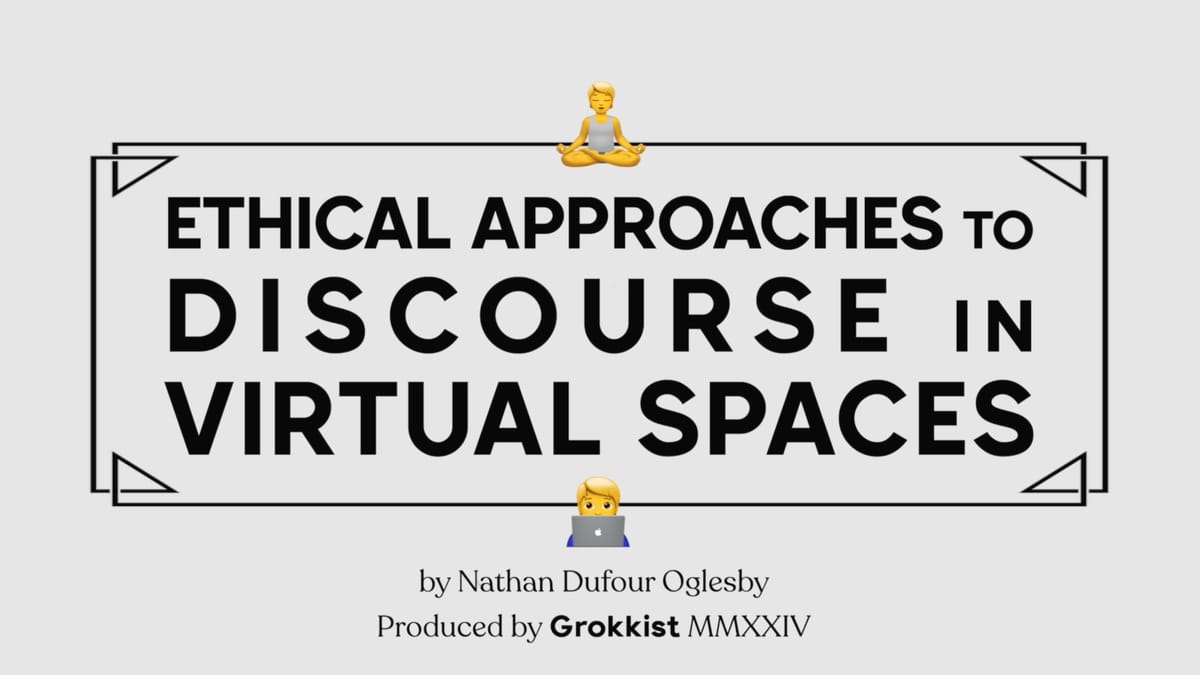
At the political scale, it might be possible for both groups, despite their basic value conflict, to find a way of living that allows everyone to co-exist peacefully – to reach what is sometimes called a modus vivendi.
Such rational, public and ethically-informed debate over goods, is in my view the most authoritative way to ground political decision-making in liberal democracy, even if we accept that whatever policy decisions results will likely never be fully accepted nor settled.
The virtue of the unending why
Furthermore, by bringing questions of purpose constantly into our consciousness, phronesis is our best defence against becoming confused about the difference between instrumental and intrinsic values.
If we are told that such-and-such policy is necessary for economic growth, consumer choice, freedom of speech, diversity, or national security, for instance, we can respond by asking what and whom those things are good for.
Economic growth, consumer choice, freedom of speech, diversity, or national security may well be desirable things, but are they desirable in and of themselves (intrinsic) or for the sake of something else (instrumental)?
It is hard to see, for instance, how economic growth could have intrinsic value. Rather, it has instrumental value for its contribution to human purpose of some kind. In which case, let us name those purposes directly and remind ourselves of the manner in which economic growth contributes to them.
The goods themselves, or the policy of bringing them about through economic growth, may then more legibly become the subject of fruitful, value-laden conflict.
It's worth noting that the concept of 'legibility' itself has connotations in political thought. In James C. Scott's Seeing Like a State, the concept of legibility provides a critical lens through which we can understand the interplay between knowledge, power, and policy in liberal democratic societies.
Scott argues that states strive to make society 'legible' through simplification, standardisation, and documentation. This process allows for easier governance and control but often at the cost of ignoring local knowledge, complexities, and nuances that do not fit into the neat categories imposed by the state.
Legibility, in Scott's view, has negative connotations – it's about creating a version of reality that can be easily read and manipulated by those in power.
In practice it often involves reducing the richness of human experiences and social practices to a set of quantifiable and manageable elements. For example, traditional agricultural practices, which are deeply embedded in local contexts and knowledge, may be replaced by standardised agricultural methods that prioritise efficiency and control over local suitability and sustainability.
Legibility can thus be seen as a metaphor for how political systems often favour instrumental over intrinsic aims. When policies are designed for ease of administration rather than to address the real and diverse needs of people, they become tools of control rather than of liberation. This process can lead to the familiar "civilization of means without ends," we described back in Part 1, where the original goals of policies are forgotten, and the procedures themselves become the ends.
By making conflicts and complexities 'legible' in the sense Scott intends, liberal democracies often deny the inherent messiness of real-life politics.
While of course I wholeheartedly agree with Scott's analysis of politics, I use the the idea of 'legibility' in a much more hopeful and constitutive sense than he does.
In attempting to make value conflicts more legible, I am advocating for a vision of politics that acknowledges and embraces these conflicts, making them legible in a way that is honest and transparent.
This means not just simplifying them for ease of governance but truly understanding and addressing the diverse and specific lives of real people, moving beyond mere proceduralism and instrumentalism in politics to truly engage with the intrinsic values and purposes – the Big Whys – that make our lives meaningful.
Children know what it means to ask why again and again, and what adult on the receiving end of such an unending why has not been secretly afraid that at some point they might run out of convincing answers?
In an open society, let us swallow our fear and allow politics to be a public contest for convincing answers to the unending ‘why’.
In an open society, let us swallow our fear and allow politics to be a public contest for convincing answers to the unending ‘why’.
Towards a new political vocabulary
We now have a vision for liberal democracy in which politics is not disguised, denied or displaced through procedure, instrumentalism and privatisation. Instead, its inherent conflicts are acknowledged, made legible, and given public space.
First principles and questions over the great and the good are hardly exempt from that conflict or frozen-in, but are instead themselves thrown cheerfully into the mix.
Importantly, this vision of politics includes both content and context. It is not concerned with abstract persons or with 'The People', but rather intended for really-real-actual-people who have specific and particular lives and who frequently find themselves in everyday situations in which they are in conflict with other really-real-actual-people over a plurality of worthwhile ends.
It will of course take more thinking work to combine such agonistic liberalism with a value-plural virtue ethics framework so that it yields a fruitful range of categories, concepts and vocabulary that can constructively inform political practices in a revitalised liberal democracy.
Any such vocabulary will also need to take into account the observations about the human condition we made in Part 3, including the symbiosis between reason and emotion; the relational nature of self-identity; the crucial importance of analogy to sense-making; and the proper grounding of value decisions in interpretive judgment.
That is for the future and for also others to build on, though I intend to be advocating and embodying some form of it in a practical sense through what we do here at Grokkist.
Meanwhile, what follows in the final section of this essay is my proposal for a fitting metaphorical register in which such a political vocabulary might flourish.
Reharmonising the music of politics
In the virtue ethics tradition, the term for the ultimate human good is eudaimonia, or good spirit. This word is often now translated as ‘happiness’, but is better translated as ‘flourishing’, for reasons we can discuss another time.
In contrast to the thinness of the former word, ‘flourishing’ implies not only the avoidance of mishap, but an active, flowing and creative state that reflects many kinds of excellences in concert with one another.
To use a musical analogy, if a life is a song, then a flourishing life is a virtuoso performance.
Though there are many kinds of song, we nonetheless recognise different styles of music as being varying kinds of the same thing. Thus we can talk about many styles of good life, while recognising them all as different versions of the same thing.
Amartya Sen and Martha Nussbaum have attempted to reorient theories of justice and human rights to this kind of value-plural, content and context-focussed perspective in their ‘capabilities approach’, which has been gaining influence in recent years.
The idea of a virtuoso performer turns out to be a fitting description of phronesis in action, as Pierre Bourdieu describes:
Only a virtuoso with a perfect command of [their] “art of living” can play on all the resources inherent in the ambiguities and uncertainties of behaviour and situation in order to produce the actions appropriate to each case, to do that of which people will say “There was nothing else to be done,” and do it the right way.[10]
Schwartz and Sharpe describe this same phenomenon as ‘moral jazz’, suggesting a musical vocabulary may be apt for discussing both ethics and politics.[11]
Indeed, Hannah Arendt described politics in the republican tradition as acting ‘in concert’.[12]
If you’ll allow me to riff on this extended metaphor for the coda...
Music is highly rational, yet emotion is what gives it strength and meaning.
Though music is a universal language, there are different styles, and taste is largely a matter of judgment. And it is always and unavoidably made of many parts.
If politics is a musical performance, it can harmonise or be discordant.
It can be shrill or sophisticated, shifting in rhythm and tempo, with complex themes and variations.
In denying its emotional force and limiting its full range of expression, politics in too many liberal democracies today is played only in a narrow and tinny register.
The rational-utilitarian political music of our times is the music of elevators, waiting rooms and other such spaces — a dismal, lifeless trudge around a soundscape through which we can dimly perceive a memory of a time we heard these sounds when they once had verve, and purpose.
The rational-utilitarian political music of our times is the music of elevators, waiting rooms and other such spaces...
...a dismal, lifeless trudge around a soundscape through which we can dimly perceive a memory of a time we heard these sounds when they once had verve, and purpose.
Such meagre music brings joy to no-one, but is yet too insipid to raise anyone’s ire.
We play joyless music in liminal spaces not because anyone wants to hear it, but because the prospect of no music at all is too unbearable to countenance. For many of us, this is the only kind of political music our ears have become used to hearing.
But with a fresh arrangement of our familiar politics, we could open ourselves to moments of harmonic splendour as well as moments of dissonance and discord.
We in liberal democracies should not fear this, as it is what sets our way of life apart. We may prefer to avoid politics and the old questions of the good life, but such silence costs us dearly. Montaigne knew this:
We must learn to suffer whatever we cannot avoid. Our life is composed, like the harmony of the world, of discords as well as of different tones, sweet and harsh, sharp and flat, soft and loud. If a musician liked only some of them, what could he sing? He has got to know how to use all of them and blend them together. So too must we with good and ill, which are of one substance with our life.[13]
The authoritarian capitalist societies can never open up the internal tensions of politics to the public realm, because they insist always on some foundation of public sameness. No matter the level of private freedom granted in such arrangements, this cannot but diminish human flourishing as a whole.
Aristotle knew this:
‘There is a point at which a polis, by advancing in unity, will cease to be a polis ... It is as if you were to turn harmony into mere unison, or to reduce a theme to a single beat.’[14]
This isn't the future I want to hear. But as it stands, liberal democracy is in serious trouble, both from without and from within.
Can we come together to orchestrate a change of tune? Or will we simply repeat until we fade out?
Reprise: Imagination thaws inevitability
In Part 1 of After the End of History, we began by observing that an emerging, stable political alternative to liberal democracy, in the form of authoritarian capitalism, provides occasion to reflect not only on the health of present liberal democratic societies, but also on some of our most basic assumptions about liberal democracy as a political form.
Once stripped of its guarantee of being frozen in place as the ultimate political form towards which history has been progressing, we had reason to reflect on what good liberal democracy could offer on its own merits, as compared to its new chief competitor in authoritarian capitalism.
We found an answer in liberal democracy’s capacity for public freedoms, but saw that for a variety of reasons and in a multitude of ways, these were sorely in need of renewal in many liberal democratic societies as we find them today.
In particular, we noted the diminished possibilities of public space and asked how it is that the old questions of how to live well and what a good society looks like had gone missing from public discussion, and how we might bring these questions to life again in a way that could suffuse liberal democracy with fresh moral authority.
In Part 2 we questioned the view that history has a direction or a purpose, and saw that the dogma of inevitable progress towards liberal ideals denied the possibility of seeing genuine conflict to those ideals or space for such conflict to emerge in public political practice.
We also saw that a variety of ingrained practices such as technological solutionism, market fundamentalism, and a legalistic approach to moral questions, had the combined effect of evacuating questions about the good life from public life and politics.
We saw that the potential for conflict over such questions could never be wholly avoided or suppressed, and wondered why political practice in liberal democracies appears so geared towards doing so when the public freedom to contest questions of the good life seemed so obviously the chief advantage of an open society compared to other forms such as authoritarian capitalism.
In Part 3 we saw that a number of unreflective mental models and naive analogies had framed our thinking about individuals, society and human nature in ways that invisibly but deeply constrain our ability to practice politics in an open spirit. And despite this, we observed that we have been unwilling to discard such limiting analogies in favour of ones that better reflect lived experience.
We disputed the idea of a social contract and the notion of a pre-social self-interested individual without content or form. We saw that reason cannot and should not rule alone, that an individual cannot exist without a society, and that an individual self and any notion of their interests must be constituted in terms of the many and varied connections a person has to others in a relationship of mutual accountability.
In Part 4 we considered an approach to thinking about liberal democracy that acknowledged the central role of political conflict in public life, and the existence of a plurality of worthwhile ends that people actually pursue in their lives that cannot be reduced to a single monistic idea of happiness or satisfaction.
We rejected context-independent frameworks of rule-based or outcomes-focussed ethics in favour of a virtue ethics approach that considers questions of good with reference to the content and context of real people’s lives and decisions.
We suggested a direction for future theoretical work to combine virtue ethics with agonistic politics in a way that can inform political practices in a newly value-laden liberal democracy, and outlined some preliminary steps towards this.
Throughout, we discovered time and again that aspects of our social and political life that seemed at first glance to be matters of fact, beyond dispute or otherwise given to us as fait accompli, turned out instead to be artefacts of ideology, or the product of deep preconceptions about the nature of knowledge and reality.
By deconstructing such notions, these were revealed largely to be matters not of fact, but of interpretation and policy — that is, matters of sense-making, choice, and action.
The history of the twentieth century can often read as a terrible, bloody tragedy of tens of millions who were sacrificed to various kinds of ideology — fascism, communism and other totalitarianisms chief among these. Ideology makes things seem necessary that aren’t, and offers only unseeing certainty where supple openness of heart and mind is what's truly needed.
Ideology makes things seem necessary that aren’t, and offers only unseeing certainty where supple openness of heart and mind is what's truly needed.
There is something deeply unsettling about closing the gap between people as they are and how we imagine them to be by stretching, chopping or warping real people to fit our idea of them via some Procrustean apparatus, mental or physical.
When real people vanish into ‘the people’, this too is a kind of sacrifice.
That is why in some sense it would be a still worse tragedy if we remembered the horrendous casualties of the twentieth century merely as ‘bypaths of history’ on the road to some comfortable certainty at the end of history, whenever it may be.
This too is ideology, as is the inescapable and narrow doctrine of economic self-interest that dominates life in our liberal democracies at present. To update Rousseau's infamous observation for our times, 'Man may be freer than ever before, but everywhere he is in chain stores.'
History is not certain, and the old questions of the good life will never disappear, regardless of whether the only better life we can dream of in a neoliberal world is one with the opportunity to get a better kitchen, or a future that looks just like the present but with more options.
Ideological certainty in liberal garb has diffused, marginalised or suppressed our ethical vocabularies and imaginations, while our public language has been hollowed out and taken over by market metaphors.
Unable to find expression in public life, politics or the law, meaningful ethical expression has nowhere to go but private life, where it is exhausted as heat in the form of personal opinion.
We have enlarged private freedom at the cost of public mediocrity and political immaturity. This is hardly an appealing advertisement for liberal democracy, and it may not ultimately be a winning combination in the face of competition from authoritarian capitalism as an alternative political form, where at least the trains run on time.
But once we recognise our apparent restraints as not inevitable but merely a matter of choice, we become free to explore the possibility of making a better choice.
At any moment, we could decide to tell a story about human social and political life in which actual human beings, with their untidily complicated lives and attachments, are at the centre.
At any moment, we could decide to ask if government can do more for us than secure the border and increase GDP, or if we can do more for each other than live our own lives in material, atomistic complacency.
We could dream of a thousand ways for people to live dazzlingly different but nonetheless meaningful and fulfilling lives, and devise a million ways to see that their needs are met so that they can.
We could make such an ongoing conversation the beating heart of our shared common life, and though the conversation might get heated from time to time and we may never agree, we could accept its occasional bust-ups and spillovers because we could be mature enough and humble enough to know that nothing else quite like it existed anywhere else on earth, and that others elsewhere dreamed of life in a society comfortable enough with itself to be publicly free.
All this, we could. Why don’t we?
Offline References
[1] Honig, Bonnie, Political Theory and the Displacement of Politics (Cornell University Press, 1993), 2.
[2] Quoted in Burchill et al., Theories of International Relations. Edited by Scott Burchill and Andrew Linklater. 5th ed., (Palgrave Macmillan, 2013), 169.
[3] Crick, Bernard, In Defence of Politics (Bloomsbury, 2013), 6.
[4] Freudenberg, Graham, A Certain Grandeur, (Penguin Group Australia, 2009) 29.
[5] Crick, In Defence of Politics, 5.
[6] Honig, Bonnie. “Between Decision and Deliberation: Political Paradox in Democratic Theory.” American Political Science Review 101, no. 1 (February 1, 2007): 1–17. doi: 10.1017/S0003055407070098.
[7] ibid, 5.
[8] Gray, John, Enlightenment's Wake (Routledge, 2007), 103.
[9] Raz, Joseph, Ethics in the Public Domain (Oxford University Press, 1994), 164.
[10] Bourdieu, Pierre, Outline of a Theory of Practice, Cambridge (Cambridge University Press, 1977), 8.
[11] Schwartz, Barry, and Kenneth Sharpe, Practical Wisdom (Penguin, 2010), 41–43.
[12] Arendt, Hannah Crises of the Republic (Harcourt Brace Jovanovich, 1972)
[13] Quoted in de Botton, Alain, The Consolations of Philosophy (Penguin UK, 2001), 224.
[14] Quoted in Crick, In Defence of Politics, 3.


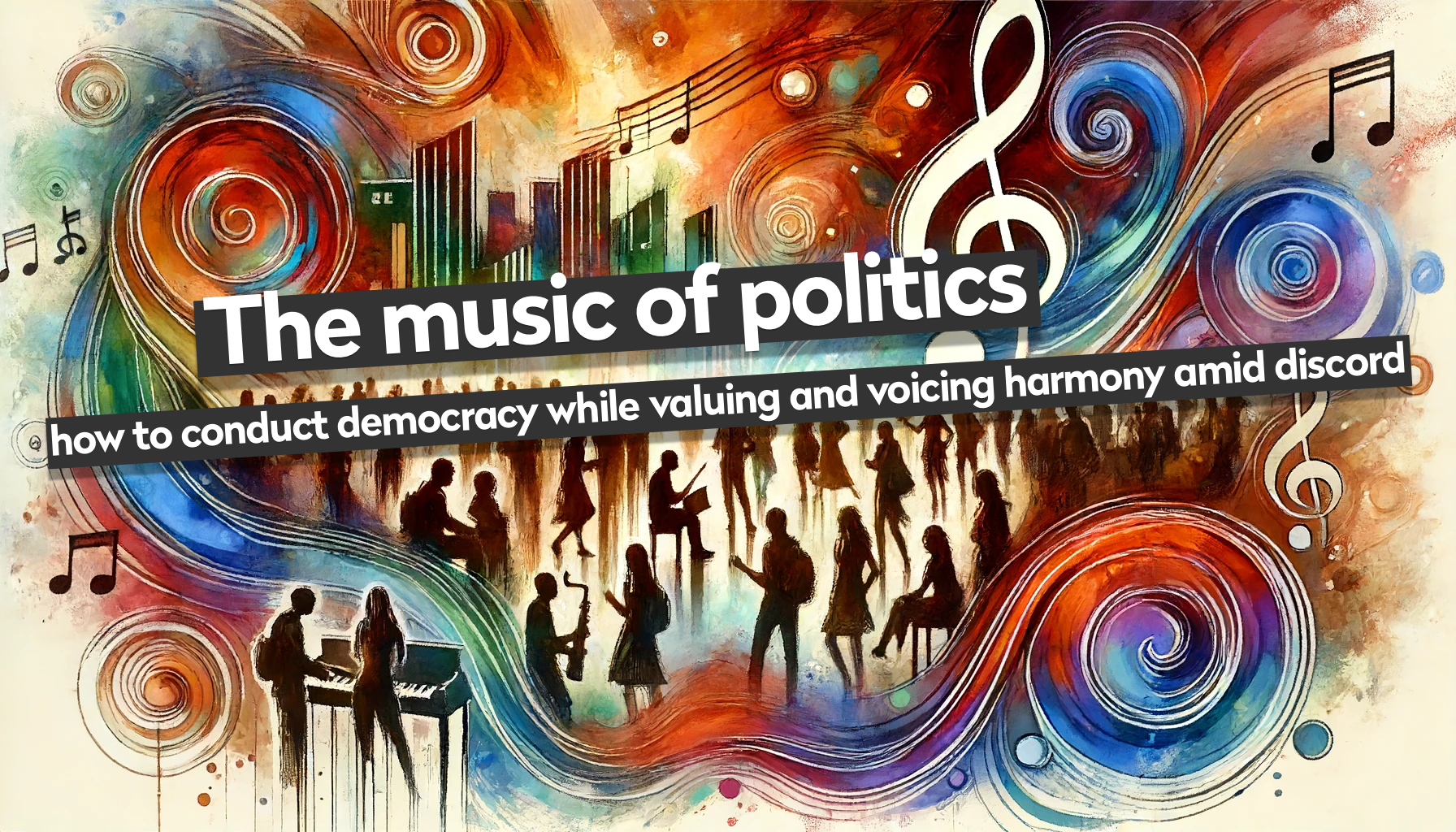




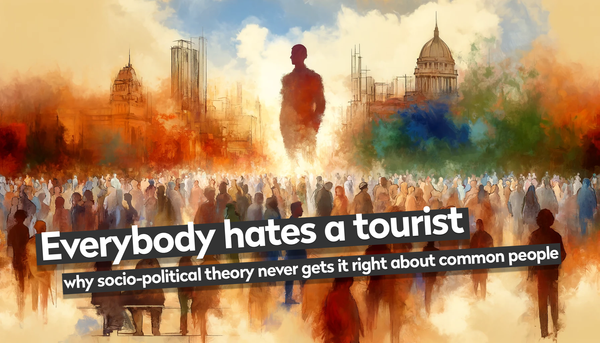
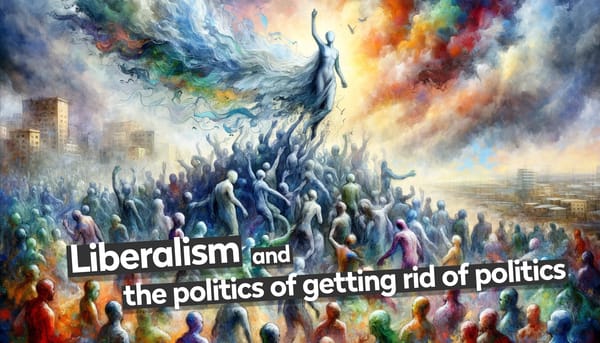
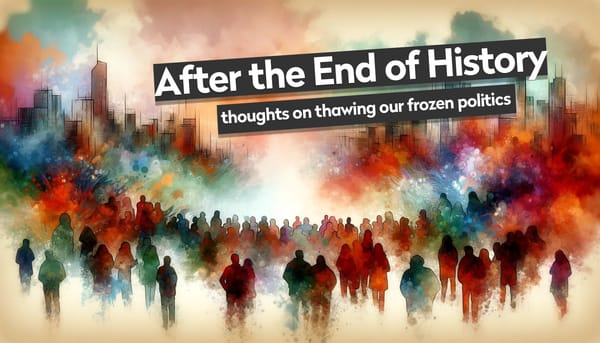
Member discussion